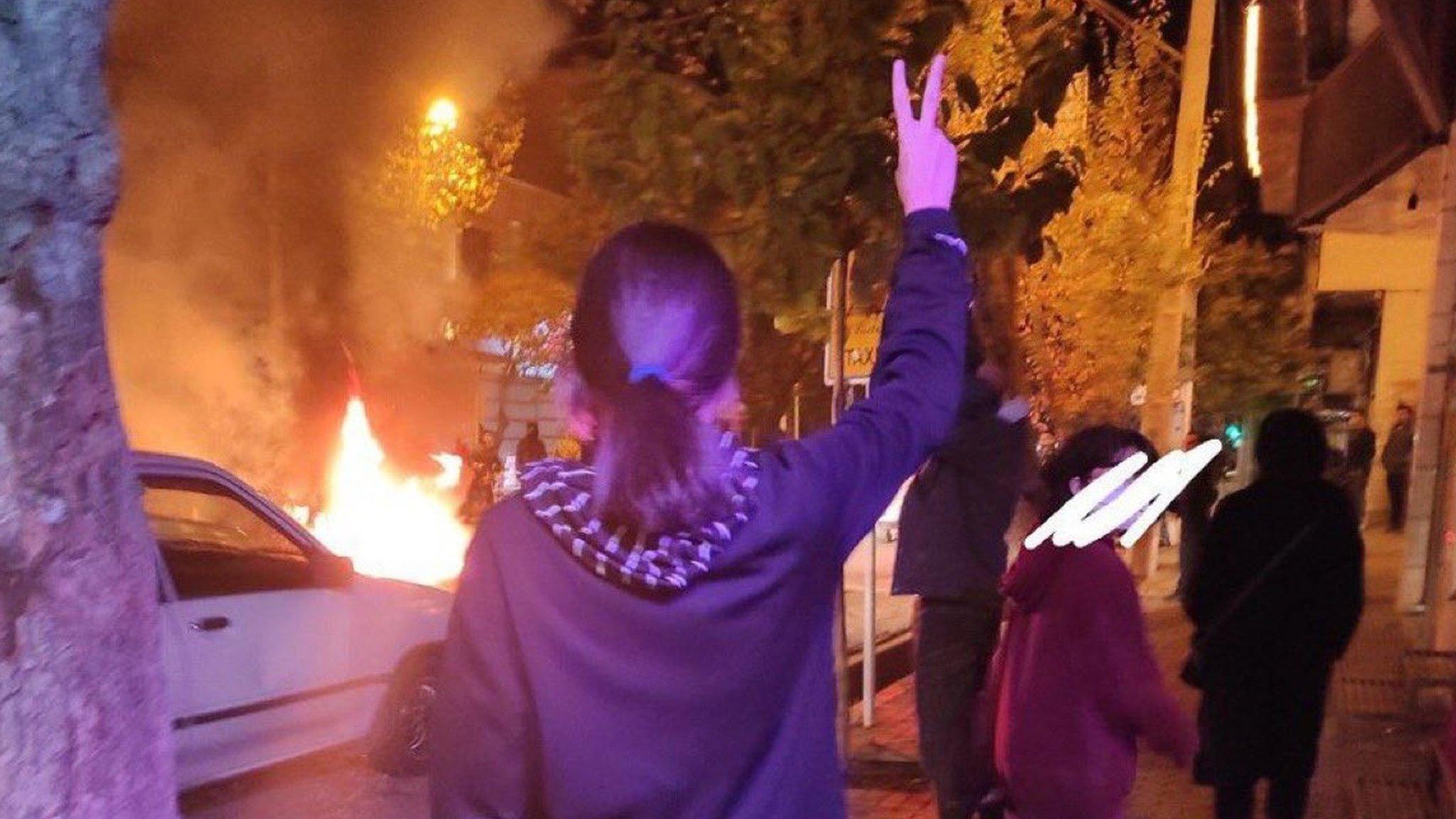Iran protests: UN fact-finding mission to investigate crackdown
- Published
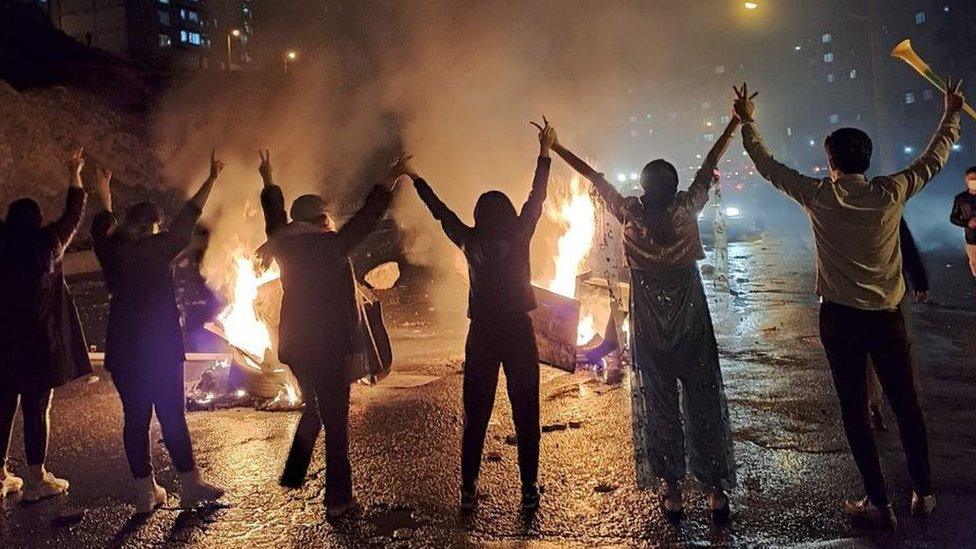
Women have been at the forefront of the protests sparked by the death in custody of Mahsa Amini
The UN Human Rights Council has voted to set up a fact-finding mission to investigate the deadly crackdown on anti-government protests in Iran.
Western diplomats said an independent probe would hold those responsible for abuses to account and send a powerful message of support to women in Iran.
Iran described calls for the mission as an arrogant political ploy.
Opening the session in Geneva, UN human rights chief Volker Turk warned that Iran was in a "full-fledged" crisis.
He said it was "unacceptable" that more than 300 people had been killed and 14,000 others arrested over the past nine weeks.
The women-led protests erupted following the death in custody of 22-year-old Mahsa Amini, who was detained by morality police for breaking Iran's strict rules on hijabs, or headscarves.
They have since spread to more than 150 cities and 140 universities in all 31 of the country's provinces and are seen as one of the most serious challenges to the Islamic Republic since the 1979 revolution.
The vote on the proposal to establish a fact-finding mission was not as close as expected, with 25 states in favour, six against, and 16 abstaining.
A last-minute amendment proposed by China that would have removed a reference to the mission was also soundly defeated.
US Secretary of State Antony Blinken praised the result, saying it would "help ensure that those engaged in the ongoing violent suppression of Iranian people are identified and their actions documented".
BBC Geneva correspondent Imogen Foulkes says it is unlikely that Iran's government will allow the investigating team into the country. However, she adds, UN investigations into Syria and Myanmar have been successfully carried out remotely.
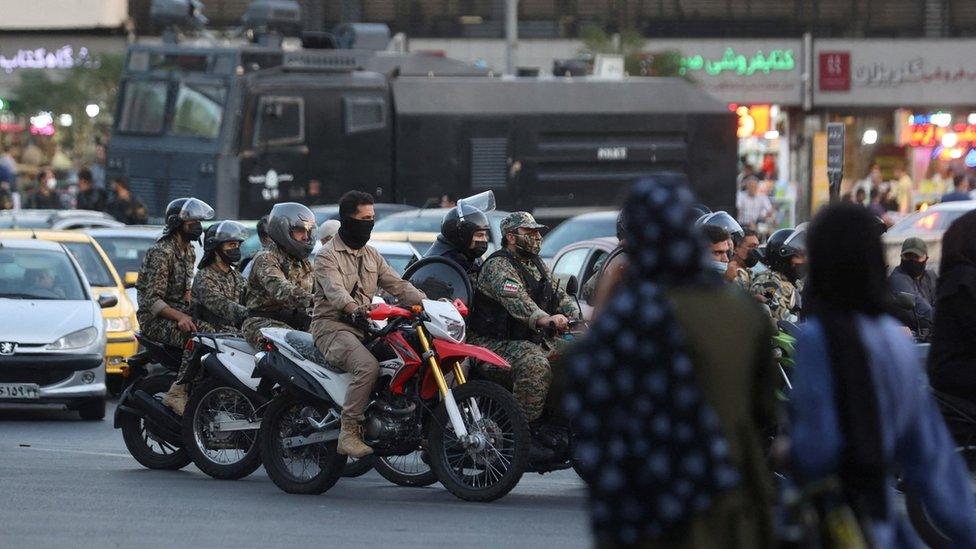
Iranian authorities have portrayed the protests as "riots" instigated by the country's enemies
Before the vote, Mr Turk told the council that he backed an independent investigation into alleged abuses because domestic probes by Iranian authorities had failed to meet international standards.
He said it had pained him to see what was happening in Iran, recalling "the images of children killed, of women beaten in the streets, of people sentenced to death".
"The unnecessary and disproportionate use of force must come to an end.
"The old methods and the fortress mentality of those who wield power simply don't work. In fact, they only aggravate the situation," he added.
"We are now in a full-fledged human rights crisis."
The UN human rights chief accused Iranian security forces of showing "blatant disregard of international rules" by using live ammunition, birdshot and other metal pellets, tear gas and batons against unarmed demonstrators and bystanders who posed no threat to life.
German Foreign Minister Annalena Baerbock told the council that Iran had repeatedly ignored calls to respect human rights and stop its crackdown, adding: "The only answer we received was more violence, more death."
"If we don't collect the evidence today, if we don't support this resolution, justice will never come to the victims."
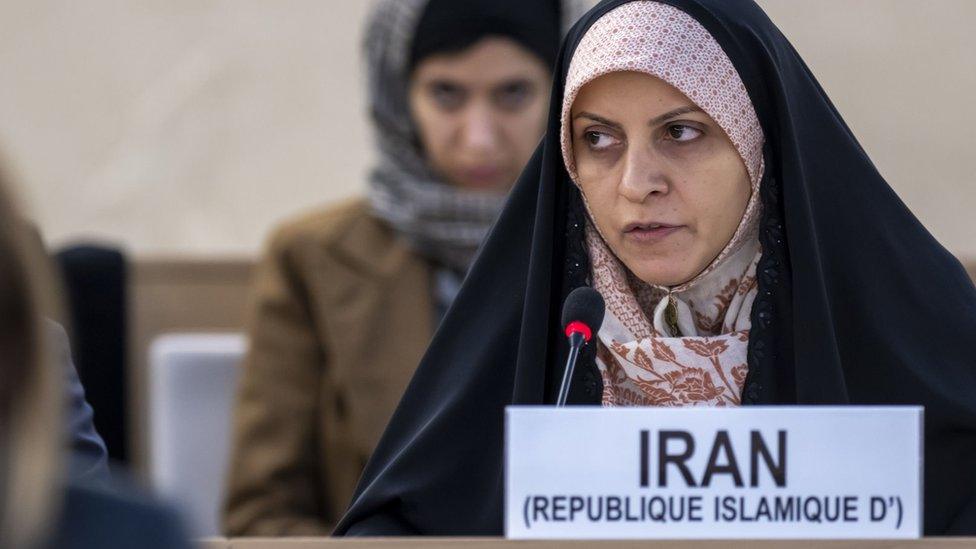
Tehran's representative at the Geneva meeting wore a black full-body cloak known as a chador
But Iran's representative, Khadijeh Karimi, said Western countries "lack[ed] the moral credibility to preach".
"Reducing the common cause of human rights to a tool for political purposes of specific groups of Western countries is appalling and disgraceful," she said.
China's ambassador, Chen Xu, warned against "turning human rights into a tool to intervene into other countries' internal affairs".
In a separate development on Thursday, Iranian semi-official media reported that the footballer Voria Ghafouri had been arrested on suspicion of "anti-state propaganda".
The hard-line Fars news agency said the 35-year-old former member of Iran's national team had criticised the government and supported "rioters" - a term authorities have used to portray the protesters.
- Published22 November 2022
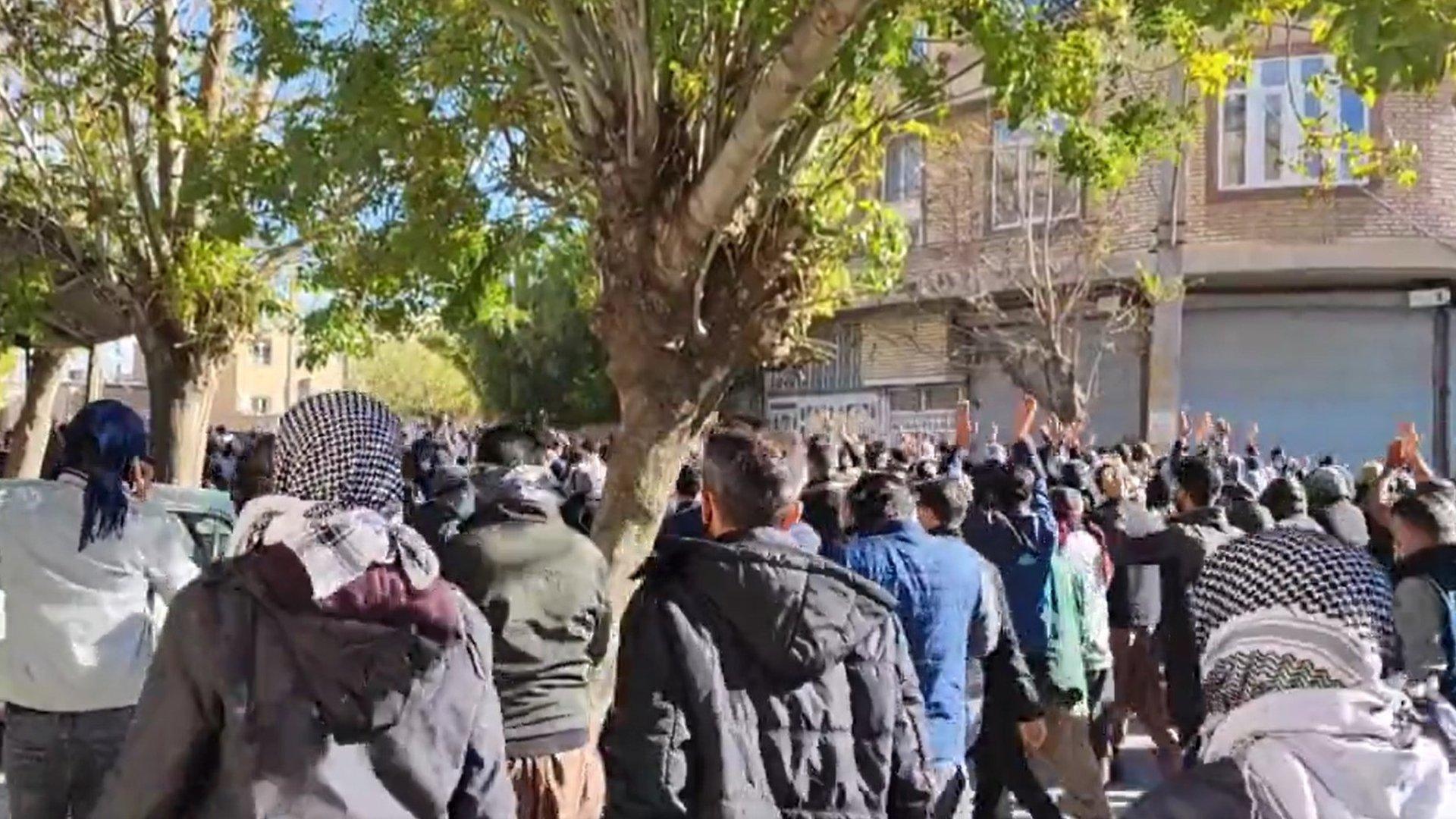
- Published21 November 2022
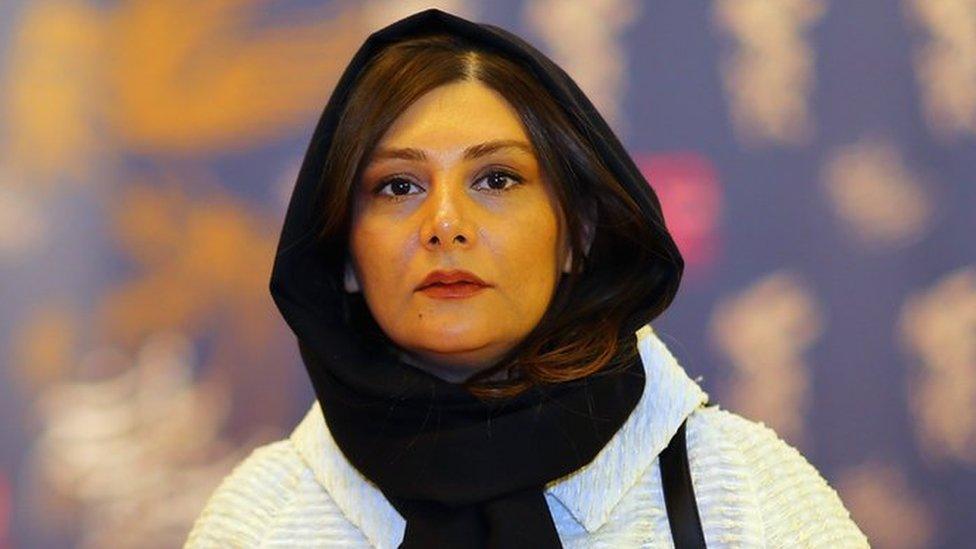
- Published17 November 2022
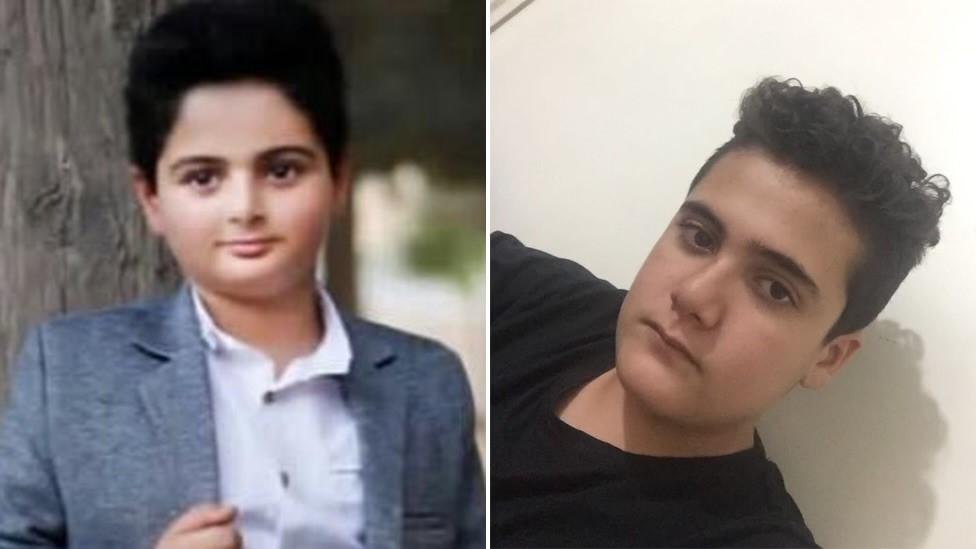
- Published16 November 2022
